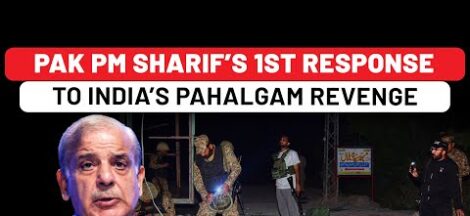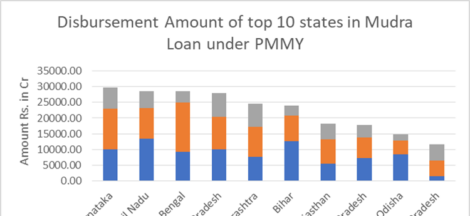By Nilanjan Banik
These days the multilateral agencies are increasingly losing their relevance. Take the UN system for example. Despite an overwhelming majority voting in favour of demanding a ceasefire in Gaza, the US blocked it by using its veto power. Interestingly, just a year back, Russia also used its veto power when the majority of the countries were demanding a ceasefire in Ukraine. Critics say the fact that five permanent members – USA, Russia, France, United Kingdom, and China – have the final say on a resolution renders the UN system helpless.
In an increasingly multi-polar world, it is unlikely that the UN system will deliver the desired outcomes. The stories are not much different for other multilateral agencies such as the World Trade Organization (WTO) and the World Health Organization (WHO). Trade as a percentage of global GDP is falling, and trade pundits are attributing that to the ineffectiveness of WTO. There are non-tariff barriers that are discriminatory and extra-trade issues such as climate, gender, and intellectual property rights (IPR) that are restricting market access, especially from developing countries.
WHO is not much different. Many attributed the high fatalities at the time of COVID-19 to a lackadaisical attitude by the WHO. It delayed declaring the disease a pandemic. Also, many of the WHO recommendations came unsubstantiated, often too late, had gaps, and lacked practicality. During initial days of COVID-19, WHO also recommended that the countries can keep their borders open. The very fact China is a big donor, made WHO take a rather lenient strategy.
COVID-19 killed 6.9 million people. WHO action is now being closely watched with the advent of another mysterious virus spreading in China. The mysterious outbreak of pneumonia in Beijing and Liaoning province of China is reminding us of the early days of COVID-19. The hospitals are getting inundated with sick children and teachers, with the severity of the situation prompting the suspension of classes in certain schools. When the WHO itself is preaching to other national governments about the importance of vigilance, research, and preparedness in fighting new diseases, the stance that the WHO takes differentially for some countries such as China is putting to question its effectiveness in containing pandemic.
The story does not end here. From being selective in terms of speaking out against any government action, at a micro-level, some of the pronouncements of WHO are also questionable. Take the case of Petrol – Smartphones – Pickled vegetables – and Caffeic acid (found in coffee, wine, and tea). These are all categorized as Group 2B “possible carcinogens” by the WHO. On top of that, the WHO categorizes red meat as a Group 2A “possible carcinogen”. The 2A grouping signifies that there is little evidence of these items causing cancer in humans but sufficient evidence of it occurring in experimental animals. In Group 2B the possibility is even less and the category signifies that there is limited evidence of these items being carcinogenic in humans and less than sufficient evidence of them causing cancer in animals. Such less-than-definitive announcements only perpetuate fear amongst the masses, while leaving the governments confused about how they need to respond.
A much-hyped recent announcement by WHO suggested that the use of Aspartame (a widely used sugar substitute) is cancer-causing. The US Food and Drug Administration (FDA) disagreed with this new classification, pointing to evidence of safety. The FDA made a rejoinder that aspartame being labelled by the WHO “as ‘possibly carcinogenic to humans’ does not mean that aspartame is actually linked to cancer.”
Another example would be that of Heated Tobacco Products (HTPs) and electronic nicotine delivery systems (ENDS), which offer significant improvement over conventional products by lowering Nicotine content. While WHO has been indecisive on the subject, a few countries like the US, UK, Japan, etc. have adopted HTPs and ENDS as safer alternatives based on scientific evidence. The USFDA has determined that Modified Risk Tobacco Products (MRTPs) for the US market are appropriate for the protection of public health because of lower levels of some toxins than those found in combustible cigarettes. The potential of HTPs and ENDs to accelerate the end of smoking is evidenced by the case of Japan, where smoking prevalence was reduced by 1% between 2013 and 2016, with a further reduction of 5.2% smoking rates between 2016 and 2019. Rather than accommodating the case of small incremental improvement (which may also lead to significant transformational innovations), WHO has taken a blanket approach of attacking all tobacco related products together, thereby shutting the door for adapting to incremental better habit through research and development.
A blanket ban on the use of sin goods actually leads to more societal loss as oppose to benefit. For example, consider the case with liquor ban in the State of Bihar. The cost of criminalization of alcohol consumption in Bihar has led to sprawling numbers of illegal hooch mafia, a massive pile of alcohol smuggling related cases, hooch death (almost three hundred in 7 years), an estimated loss of 40,000 jobs and zero state tax revenue.
Even for globally pervasive issues destroying health such as industrial and air pollution, the WHO often fails to express its opinion. By keeping quiet where it should be directing countries to take action against such acute problems, it fails in apportioning accountability. In displaying subservience to its funding partners and abdicating responsibility in areas where its mandate should be to protect humanity, it does itself a major disservice particularly where communities and individuals themselves have little control over what to make of a grave health situation. The fear is WHO, like its counterpart World Trade Organization, will soon lose its relevance. (IPA Service)
(The Author is Professor, Mahindra University, Hyderabad.)



